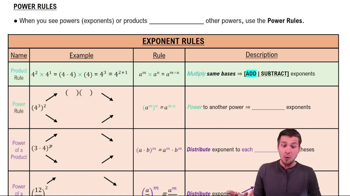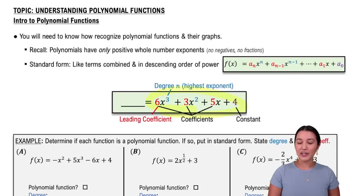60–81. Limits Evaluate the following limits. Use l’Hôpital’s Rule when needed.
lim_t→0 (1 - cos 6t) / 2t
 Verified step by step guidance
Verified step by step guidance Verified video answer for a similar problem:
Verified video answer for a similar problem:



 5:53m
5:53mMaster Finding Differentials with a bite sized video explanation from Patrick
Start learning